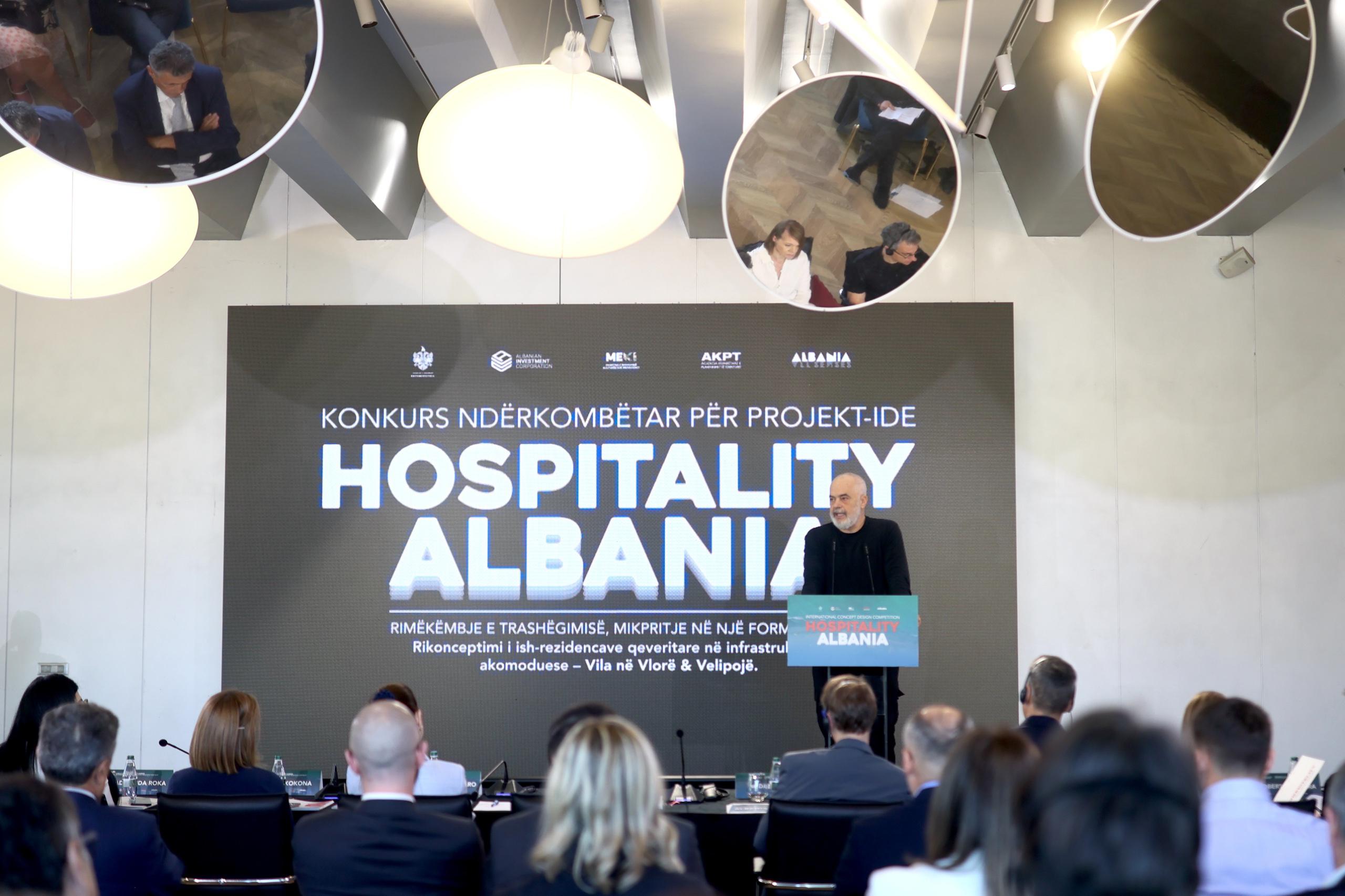“Hospitality Albania” is an investment project aimed at repurposing and modernizing former government residences—currently underutilized, deteriorated structures with high maintenance demands—by transforming them into exclusive and attractive destinations for elite tourism and hosting high-profile guests.
This initiative seeks to unlock and maximize the potential of these unique assets by integrating them into the lucrative global tourism market, a key sector for Albania’s future development. The project is expected to play a vital role in the economic and touristic revitalization of these areas, turning the properties into prime attractions that reflect a harmony between innovation and Albania’s unique natural landscapes.
Through this initiative, the goal is to set a precedent for the sustainable and efficient development of public properties, combining contemporary architecture and cutting-edge technologies with an integrated vision of luxury, hospitality, and sustainability.
The international competitive procedure for the realization of the “Hospitality Albania” investment project will be conducted in two phases: the qualification phase and the selection phase.
Today, at a special event attended by Prime Minister Edi Rama, the seven finalists of Phase II—representatives of prestigious architectural studios—are presenting their project ideas before an international jury.
***
Prime Minister Edi Rama: Good day everyone, and I’ll be very brief, because what matters more than any of our words here today is the competition itself, in which once again a group of highly skilled architects with international experience and prestige are participating.
Today, we open another chapter in the work of the Albanian Investment Corporation—a chapter that deals with the network of former government residences, which for a long time have remained in a kind of limbo due to their disuse, having essentially lost their function. The experience with two such residences here in Tirana, which have already been transformed—one into a guest house for the Albanian state to host distinguished figures from various fields, and the other into a center for young artists from around the world in cooperation with the renowned French foundation Art Explora—has demonstrated that this is the right path for repurposing these assets into functions of public interest. At the same time, it breathes new life into them by bringing the state in as a partner and offering the private sector the opportunity to turn them into a source of income.
This is precisely the case with the two projects for which today’s competition is being held: one for the villa of the former Albanian leader and dictator in Vlorë, and the other for another government residence in the area of Velipojë.
This is a new path we are treading—successfully, I believe—but above all, one where we are practically witnessing the great potential that lies in the utilization of state assets by involving the public through the state as an interested party. In doing so, we are step by step changing the models of interaction with the private sector, which until recently have been very basic and straightforward, depriving the state of many capacities to generate income. By aligning these interests and positioning the state as a regular owner—as a partner in entrepreneurship—we are in fact developing a new financial infrastructure for the state, based on the best models in Europe. These are the models of the sister agencies of the Albanian Investment Corporation, which in countries like Italy or Spain own assets and generate impressive revenues that are reinvested in the public interest to fund infrastructure and to integrate state capacities into economic growth—and to benefit from that growth.
Therefore, with great satisfaction and gratitude to all the studios that have taken part in this competition—and convinced that the competition itself will add further value, particularly in enriching the collection of contributions from some of the finest architects in Europe and the world—I also extend my thanks to the jury members who have come from abroad to assist us in the decision-making process, and I wish all participants the best of success.







